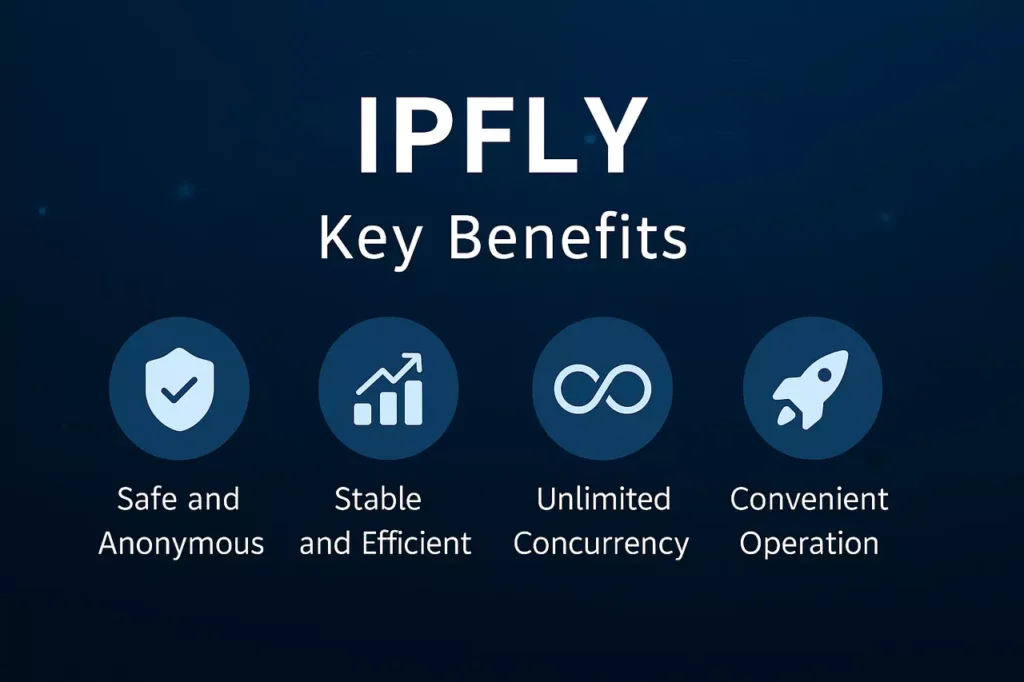In 2025, proxy services have become an indispensable tool for businesses navigating global markets, digital security, and data-driven decision-making. Among the many providers, Blockaway has recently gained visibility in proxy circles, but how does it truly compare against established platforms like IPFLY?
As demand for residential, datacenter, and ISP proxies grows — especially in fields like ad verification, e-commerce, and market research — making the right proxy provider choice directly impacts operational efficiency and security. In this article, we’ll examine how Blockaway measures up, and why many enterprise users prefer IPFLY’s infrastructure and service standards.

What Is Blockaway and Why Are Businesses Considering It?
Blockaway is a proxy service claiming to offer residential and datacenter proxy IPs for users seeking anonymity, geo-targeted access, and IP management. Their platform positions itself as a cost-effective solution for small businesses and solo operators looking to bypass regional restrictions or automate online processes.
Features typically highlighted by Blockaway include:
- Residential and datacenter proxy pools
- Dashboard for basic proxy management
- Compatibility with scraping and automation tools
While this sounds useful on paper, many enterprise-level users report limitations in areas that truly matter: proxy success rates, IP cleanliness, and reliable 24/7 support — areas where IPFLY has earned its reputation.
How IPFLY Outperforms Blockaway for Modern Business Use Cases

- Proven IP Cleanliness and Success Rates
One of the critical factors separating IPFLY from Blockaway is the quality and trustworthiness of its IP addresses. IPFLY operates over 90 million clean, real-user residential IPs covering more than 190 countries and regions, with a consistently high connection success rate — something not independently verified on Blockaway’s network.
For businesses involved in sensitive operations like social media management, brand protection, and ad verification, IP reputation matters. Clean IPs lower the risk of bans, blocks, and data inaccuracies, a key reason why brands transitioning from Blockaway opt for IPFLY proxies.
- Flexible Proxy Types for Specific Industry Demands
Unlike Blockaway’s limited offering, IPFLY provides specialized proxy categories, including:
- Dynamic Residential Proxies — Perfect for large-scale data scraping and ad verification.
- Static Residential Proxies — Ideal for managing long-term accounts and consistent brand presence.
- Dedicated Datacenter Proxies — High-speed, low-latency proxies for infrastructure and automation.
This flexibility ensures businesses aren’t boxed into a one-size-fits-all proxy solution, a shortcoming often cited by Blockaway users.
- City-Level Targeting & Custom Geo-Routing
While Blockaway offers general country-level IPs, IPFLY’s city-level targeting options in regions like the U.S., Canada, India, and Southeast Asia give users more precise control over their browsing footprint — crucial for hyper-localized ad testing, market research, and regional content monitoring.
Pricing Overview: A Note on Value
While Blockaway markets itself as a low-cost alternative, many experienced users note hidden costs in performance trade-offs. IPFLY offers competitive and transparent pricing, starting as low as $1 per IP for static residential proxies, with discounts for bulk orders. The pricing reflects not just access, but quality — including clean IP pools, 24/7 customer support, and comprehensive usage dashboards.
Real-World Performance: IPFLY Case Study
During the 2025 holiday shopping season, a leading e-commerce aggregator used both Blockaway and IPFLY proxies to monitor flash sales across five markets. The results:
- Blockaway’s residential proxies experienced a 27% connection failure rate and 19 flagged IPs.
- IPFLY delivered a 98.7% success rate with zero flagged IPs, enabling accurate price monitoring and competitive analysis.
This case highlights why growing businesses move to more robust platforms as their operational needs scale.
IPFLY’s Edge: Enterprise-Grade Features Missing from Blockaway
Key capabilities IPFLY offers, but Blockaway lacks:
- Dynamic IP rotation with customizable intervals
- Dedicated account managers for business clients
- AI-powered proxy health monitoring
- GDPR and data compliance features for enterprise users
These additions make a significant difference for companies operating at scale or handling sensitive data.
Conclusion: Is Blockaway Worth It for Businesses in 2025?
While Blockaway may suit casual proxy users or budget-restricted hobbyists, its limitations become clear when business-critical operations are involved. Factors like IP quality, success rates, infrastructure transparency, and customer support directly affect ROI in proxy-driven projects.

IPFLY remains the preferred option for businesses demanding enterprise-grade performance, precise geo-targeting, and real-time support. As digital commerce and data-driven operations continue to evolve, partnering with a scalable, reliable proxy provider is essential — and IPFLY consistently delivers where competitors like Blockaway fall short.
Explore how IPFLY’s residential, static, and datacenter proxy solutions can enhance your data security, market research, and online operations.
Contact our team for a tailored proxy solution built for your business goals.


